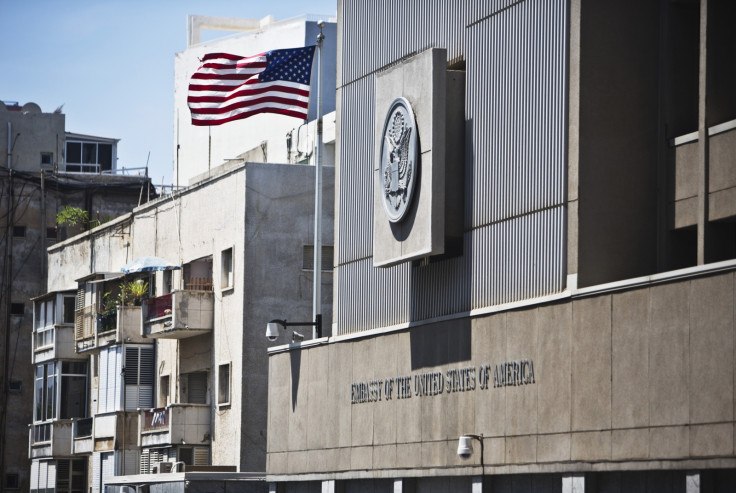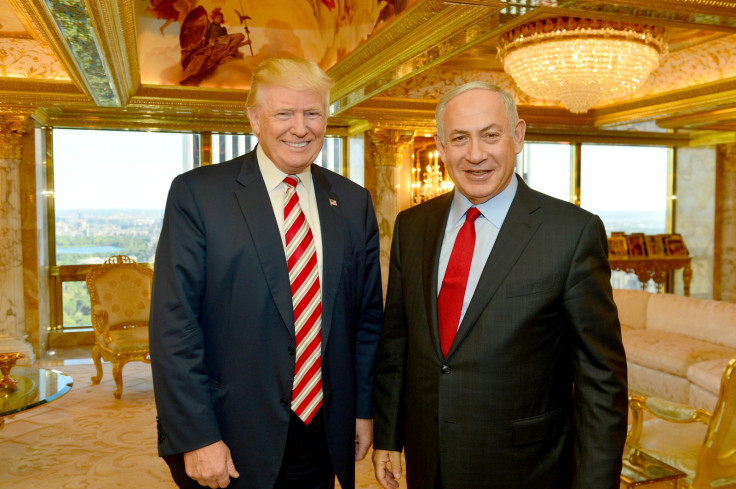Jerusalem: Republican senators unveil bill to move US embassy to Israel's 'eternal capital'
A 1995 legislation already provides for the embassy move, but was never enacted.
Republican senators have introduced a bill aimed at relocating the US embassy in Israel from Tel Aviv to Jerusalem, as president-elect Donald Trump pledged he would do.
The bill was proposed by Nevada representative Dean Heller, Ted Cruz from Texas and Marco Rubio from Florida. The latter two competed against Donald Trump for the Republican presidential nomination.
In a statement shared among the three senators, they sought to express support for the state of Israel, after a fiery speech in December by outgoing US secretary of state John Kerry stirred controversy regarding the relationship between the two longtime allies.
"Jerusalem is the eternal and undivided capital of Israel," said Cruz. "Unfortunately, the Obama administration's vendetta against the Jewish state has been so vicious that to even utter this simple truth – let alone the reality that Jerusalem is the appropriate venue for the American embassy in Israel – is shocking in some circles."
Although the US embassy is in Tel Aviv, the US consulate offices are located in Jerusalem. Most countries have similar arrangements for their diplomatic missions to Israel. The Republican statement refers to a previous legislation passed in 1995, but that was never enacted.
The Jerusalem Embassy and Relocation Act recognised Jerusalem as the capital of Israel and set a deadline for the embassy move to 31 May 1999. However, it allowed for the US president to issue a waiver every six months to keep the embassy in Tel Aviv for national security reasons. Since 1999, each US president (Bill Clinton, George W Bush, Barack Obama) has used the waiver – most recently on 1 December 2016.

The new Act proposed by the Republican senators would repeal the option of the presidential waiver. "Jerusalem is the eternal capital of the Jewish state of Israel, and that's where America's embassy belongs," said Rubio in the statement. "It's time for Congress and the president-elect to eliminate the loophole that has allowed presidents in both parties to ignore US law and delay our embassy's rightful relocation to Jerusalem for over two decade," he added.
Trump's pick to US ambassador David Friedman has said he supported the embassy move. "I intend to work tirelessly to strengthen the unbreakable bond between our two countries and advance the cause of peace within the region, and look forward to doing this from the US embassy in Israel's eternal capital, Jerusalem," he said in December, as quoted by Reuters.
After meeting Israeli president Benjamin Netanyahu in September, Trump said he "recognised Jerusalem as the undivided capital of the State of Israel".

The two-state solution for the Israeli-Palestinian conflict recently defended in Kerry's speech provides for the recognition of Jerusalem as the capital of the two states, protecting and assuring freedom of access to the holy sites consistent with the established status quo.
"Jerusalem is the most sensitive issue for both sides, and the solution will have to meet the needs not only of the parties, but of all three monotheistic faiths," said Kerry. "Most acknowledge that Jerusalem should not be divided again like it was in 1967, and we believe that," he added.
Saeb Erekat, a senior Palestinian official, warned in December that moving the embassy to Jerusalem would mean the "destruction of the peace process as a whole," Reuters reported.
© Copyright IBTimes 2025. All rights reserved.






















